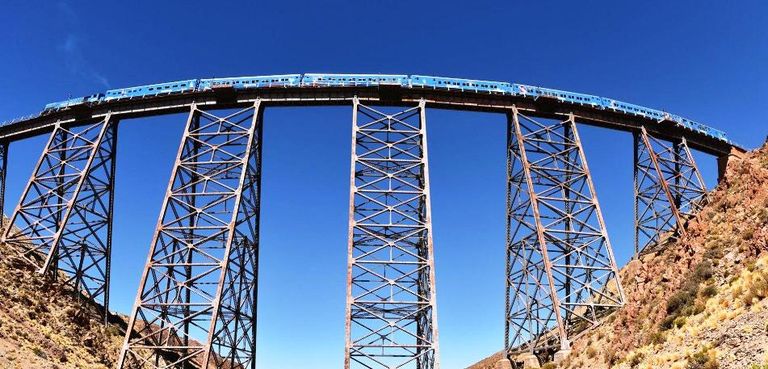
The most amazing train in the world, the one that reaches the clouds, ascends to 4,200 meters in height on a 434 km journey (round trip).
It is one of the three highest railways in the world, which crosses the dizzying mountains of the Andes Mountains among spectacular landscapes.
It starts in the city of Salta, crosses the Lerma Valley, to enter the Quebrada del Toro and reach the Puna.
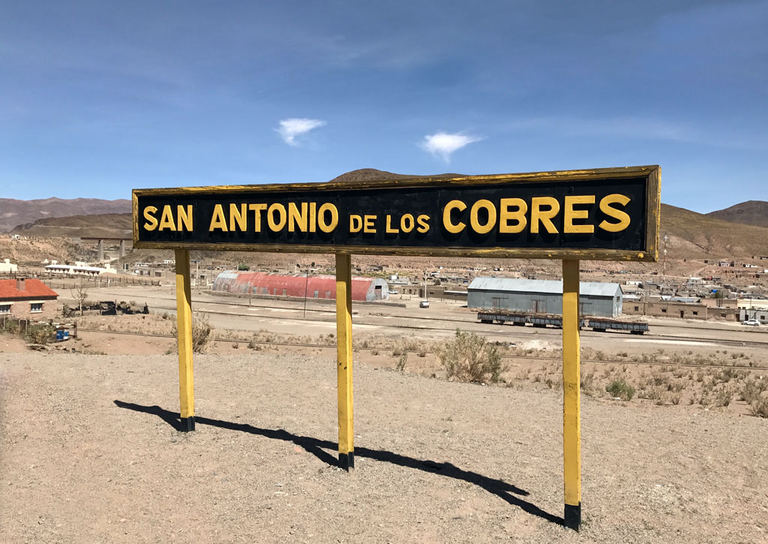
Called the Train to the Clouds, since due to its great height, clouds can often be seen under the bridges or on the slopes.
The train as a railway tourism venture was born on the initiative of the authorities of the General Belgrano Railway, who in November 1971 decided to run an experimental train with officials and journalists.
Its real name is the Northern Trans-Andean Railway or Huaytiquina, although it is popularly known as the Train to the Clouds or Train of the Clouds.
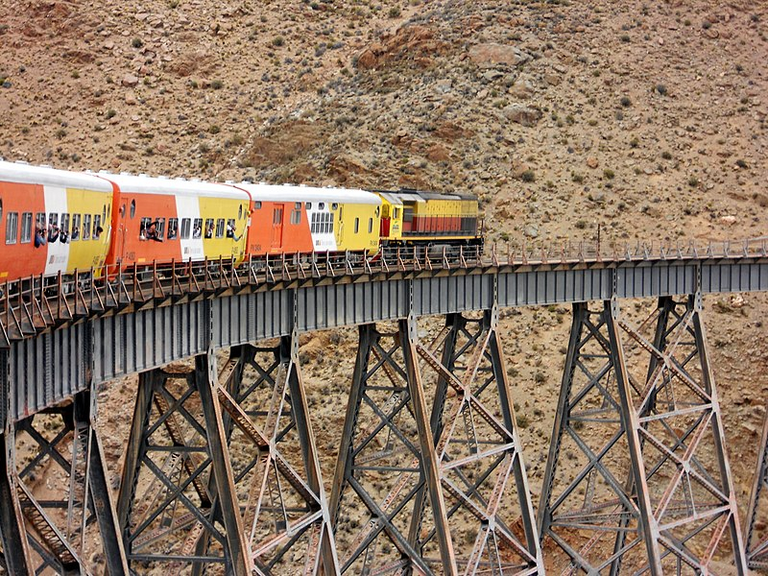
The number of loops, viaducts, tunnels and other twists and turns that the train travels through is due to the fact that the author of the project, the American engineer Richard Maury, took sides taking into account the principle of adherence of the train wheels to the tracks and the laws of physics, discarding the mechanical rack system commonly used so that railway formations can climb heights with ease.
It does not use cogwheels, not even for the steepest parts of the climb, because the tracks are arranged in a peculiar way, circulating through a system of zigzags and spirals.
The train departs from the General Belgrano station, in the city of Salta, at 1,187 meters above sea level, and ends at the viaduct.
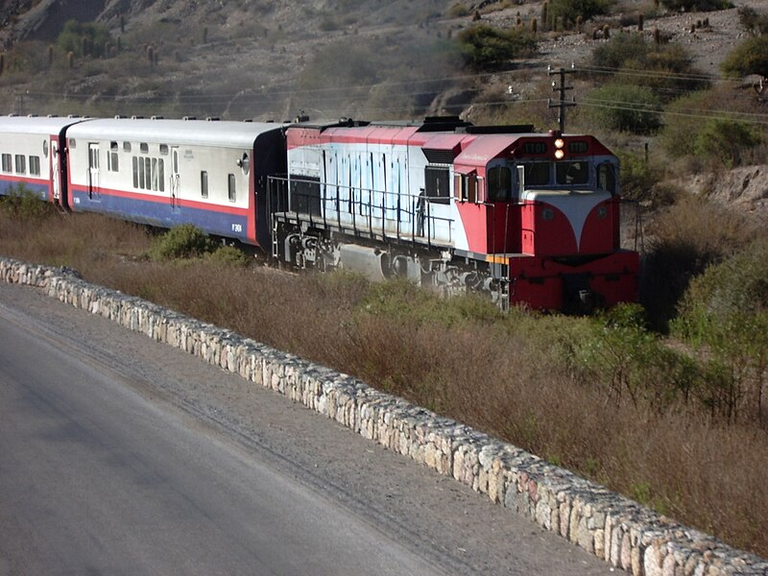
During the entire journey there are two stops: one at the San Antonio de los Cobres station, and the other at the La Polvorilla viaduct.
It starts in the city of Salta, the lowest point, and from there begins the ascent to the final point of the journey, the La Polvorilla viaduct, the highest of the entire line of the convoy.
At the different stations, the inhabitants of the towns present picturesque stalls with crafts, clothing and regional products to buy as a souvenir of the interesting trip.
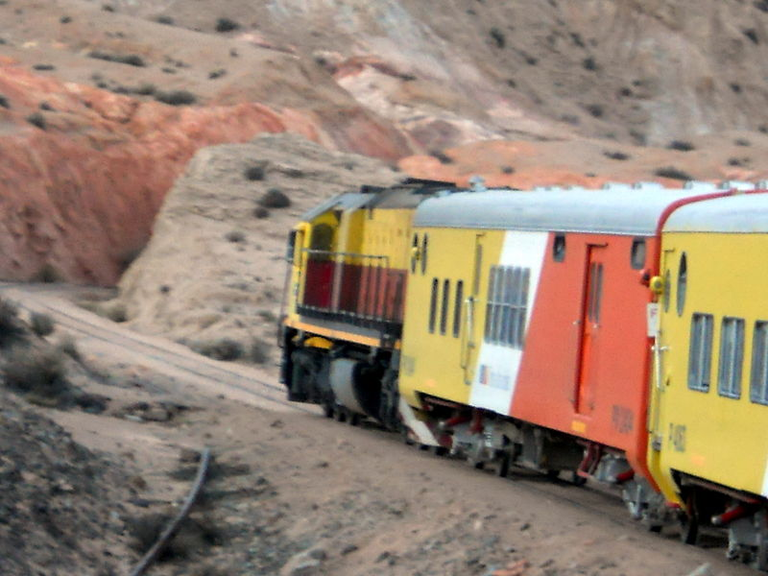
The train has services such as a dining car, a medical office, audio, video and bilingual guides.
It is important to note that in adverse weather conditions, trips may be cancelled for safety reasons.

El tren más asombroso del mundo, el que llega a las nubes, asciende a 4.200 metros de altura en un recorrido de 434 km (ida y vuelta).
Es uno de los tres ferrocarriles más altos del mundo, que atraviesa vertiginosas montañas de la Cordillera de los Andes entre paisajes espectaculares.
Parte de la ciudad de Salta, atraviesa el valle de Lerma, para introducirse en la Quebrada del Toro y llegar hasta la Puna.
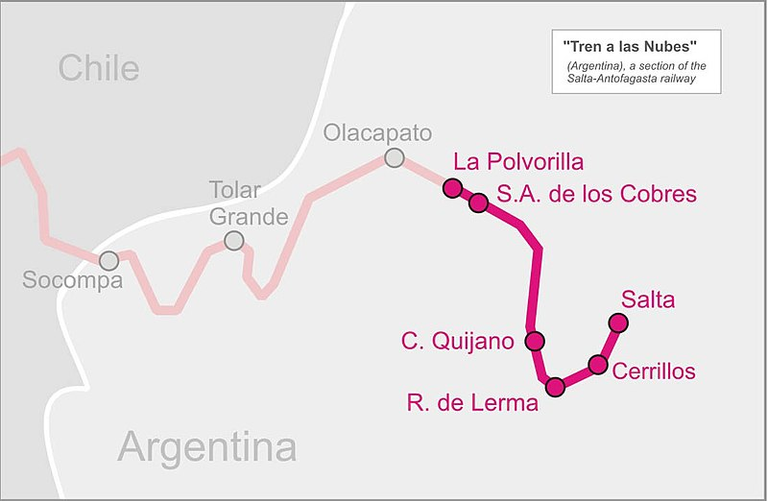
Denominado Tren a las Nubes, ya que por su gran altura, muchas veces pueden apreciarse nubes debajo de los puentes o en las laderas.
El tren como emprendimiento ferroturístico nace por iniciativa de las autoridades del Ferrocarril General Belgrano, quienes en noviembre de 1971 resuelven hacer correr un tren experimental con funcionarios y periodistas.
Su verdaero nombre es Ferrocarril Trasandino del Norte o Huaytiquina, aunque popularmente se lo conoce como Tren a las Nubes o Tren de las Nubes.
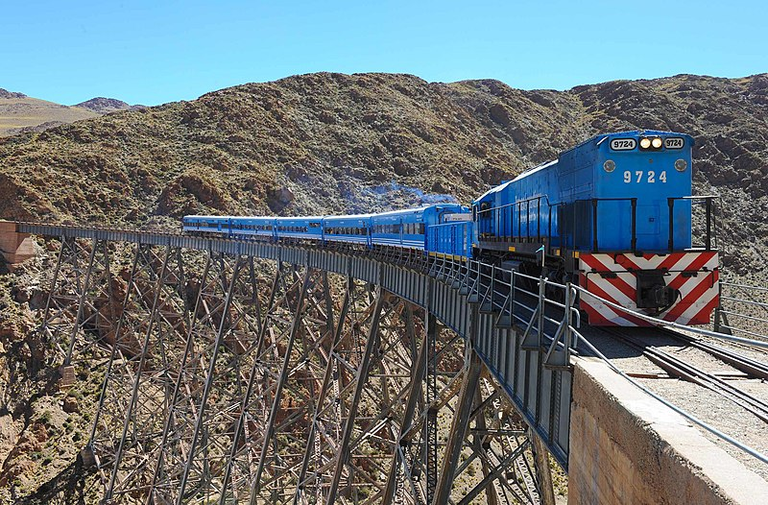
La cantidad de rulos, viaductos, túneles y otras sinuosidades que recorre el tren se debe a que el autor del proyecto, el ingeniero estadounidense Richard Maury, tomó partido teniendo en cuenta el principio de adherencia de las ruedas del tren a las vías y por las leyes de la física, desechando el sistema mecánico de cremallera comúnmente usado para que las formaciones ferroviarias puedan trepar con solvencia las alturas.
No utiliza ruedas dentadas, ni siquiera para las partes más empinadas de la subida, porque las vías están dispuestas de una manera peculiar circulando por un sistema de zigzags y espirales.
El tren parte de la estación General Belgrano, en la ciudad de Salta, a 1.187 metros sobre el nivel del mar, y termina en el viaducto.
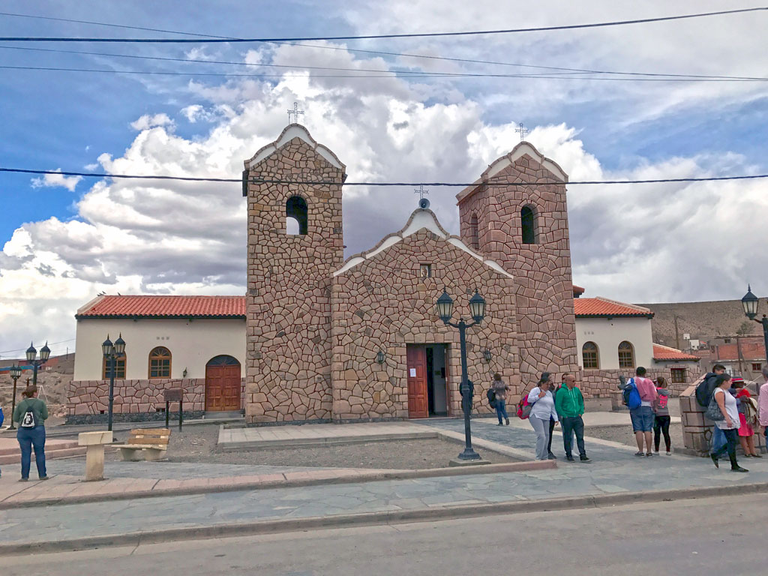
Durante todo el recorrido se realizan dos paradas: una, en la estación de San Antonio de los Cobres, y la otra, en el viaducto La Polvorilla.
Parte de la ciudad de Salta, el punto más bajo, y desde allí inicia el camino de ascenso hasta el punto final del recorrido, el viaducto La Polvorilla, el más elevado de toda la línea del convoy.
En las diferentes estaciones los habitantes de los pueblos presentan pintorescos puestos con artesanías, vestimenta y productos regionales para adquirir como recuerdo del interesante viaje.

El tren cuenta con servicios tales como coche comedor, consultorio médico, audio, video y guías bilingües.
Es importante destacar que ante situaciones climáticas adversas los viajes pueden ser cancelados por razones de seguridad.
Source images / Fuente imágenes: Tren a las Nubes.


Sources consulted (my property) for the preparation of this article. Some paragraphs may be reproduced textually.
Fuentes consultadas (de mi propiedad) para la elaboración del presente artículo. Algunos párrafos pueden estar reproducidos textualmente.
| Argentina Discovery. |  |
|---|---|
| Galería Fotográfica de Argentina. |  |
| Viaggio in Argentina. |  |
| Patagonia Express. |  |

Upvoted. Thank You for sending some of your rewards to @null. Get more BLURT:
@ mariuszkarowski/how-to-get-automatic-upvote-from-my-accounts@ blurtbooster/blurt-booster-introduction-rules-and-guidelines-1699999662965@ nalexadre/blurt-nexus-creating-an-affiliate-account-1700008765859@ kryptodenno - win BLURT POWER delegationNote: This bot will not vote on AI-generated content
Thanks!